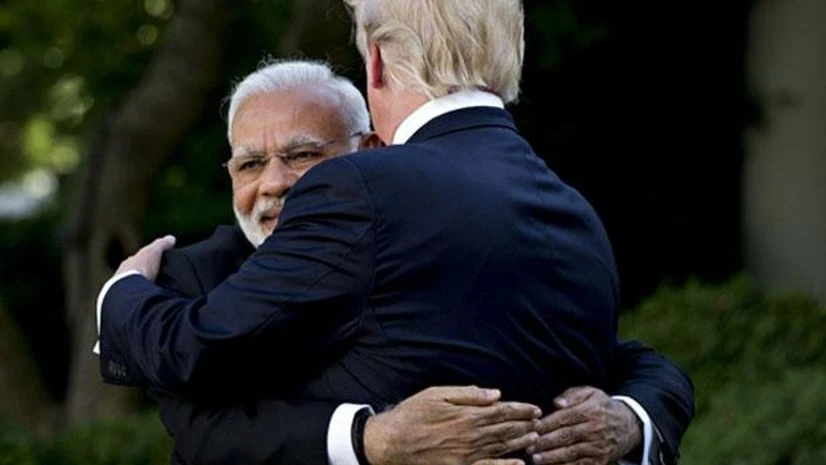India and the US need to "prioritise efforts" to manage current trade tensions and initiate cooperative projects in areas like intellectual property rights and digital trade, according to a report by a former trade official from the Trump administration.
The report, 'Trade at a Crossroads: A Vision for the US-India Trade Relationship', said it was clear that the first priorities for the future should be to manage current challenges and address those that were likely immediately ahead.
Authored by Mark Linscott, former assistant, US Trade Representative for South and Central Asian Affairs, the report is produced jointly by the Atlantic Council and the US India Strategic and Partnership Forum (USISPF).
It provides an expert analysis of the current state of the relationship, including recent negotiations and recommendations for the path forward in the short, medium, and long-term.
There is no easy way to sugarcoat the present state of the relationship -- it is one in which the only common denominator is a fundamental misunderstanding of priority objectives on the other side, which has led to misalignment of expectations in recent negotiations, the report said.
Also Read
A strong commitment to improve the bilateral trade relationship and build a sound foundation for future successes can start now, it said, adding that the current state of play suggests that the two countries were now at a crossroads, with one direction leading to an initial bilateral agreement, and the other to outright conflict.
"While conflict in which the two sides engage in retaliatory measures, such as GSP suspension and tit-for-tat tariff increases, can create new leverage and focus minds to eventually achieve an agreement, it can also significantly set back the relationship at a moment when there is an urgent need to cultivate trust and achieve some confidence-building outcomes," said the report.
The publication of the report on Tuesday comes days after a US delegation of trade officials returned from New Delhi after holding first talks with their Indian counterparts on resolving their trade differences.
The talks have started at the direction of Prime Minister Narendra Modi and President Donald Trump who met in Japan last month on sidelines of the G-20 Summit.
The report counsels that India and the United States redouble their efforts to go down a path of constructive engagement that can lead, in the short term, to a first ever bilateral trade agreement.
In parallel, it said, the two can explore new areas for bilateral engagement, with the objectives of continually building new confidence, gradually aligning their visions for opportunities to open their markets to each other, and growing trade and investment at an accelerated pace.
The report recommends that the two governments should manage current conflicts and reach an initial agreement; review and improve institutional underpinnings; recommit to the TPF and pursue institutional reform; replicate recent cooperative success; explore opportunities for significant market opening agreements; and chart a map toward an FTA.
Observing that the United States-India trade relationship is rapidly approaching a point of crisis, the report says that institutional arrangements are unable to address evolving and growing trade irritants, while protectionist instincts in both governments are exacerbating tensions.
"Recent failures to reach even a small agreement, and subsequent tit-for-tat escalations, now place the relationship at a tipping point," it said.
Noting that the United States-India relationship will be one of the most consequential of the 21st century, the report said commerce would play a vital role in determining whether it is constructive or adversarial.
Issues, including standards and conformity assessment testing, digital trade, healthcare, and agricultural trade, present areas of emerging conflict or opportunities for cooperation, the report said.
"While the history of bilateral trade negotiations has often been contentious, it also includes examples of constructive cooperation. These examples should serve as inspiration in addressing today's challenges," it said.
The United States was the second-largest trading partner for India in goods in 2018, and the single largest export destination for Indian exporters.
Bilateral trade in goods and services grew at an average annual rate of 7.59 per cent from 2008-2018, double in value from $68.4 billion to $142.1 billion.

)
